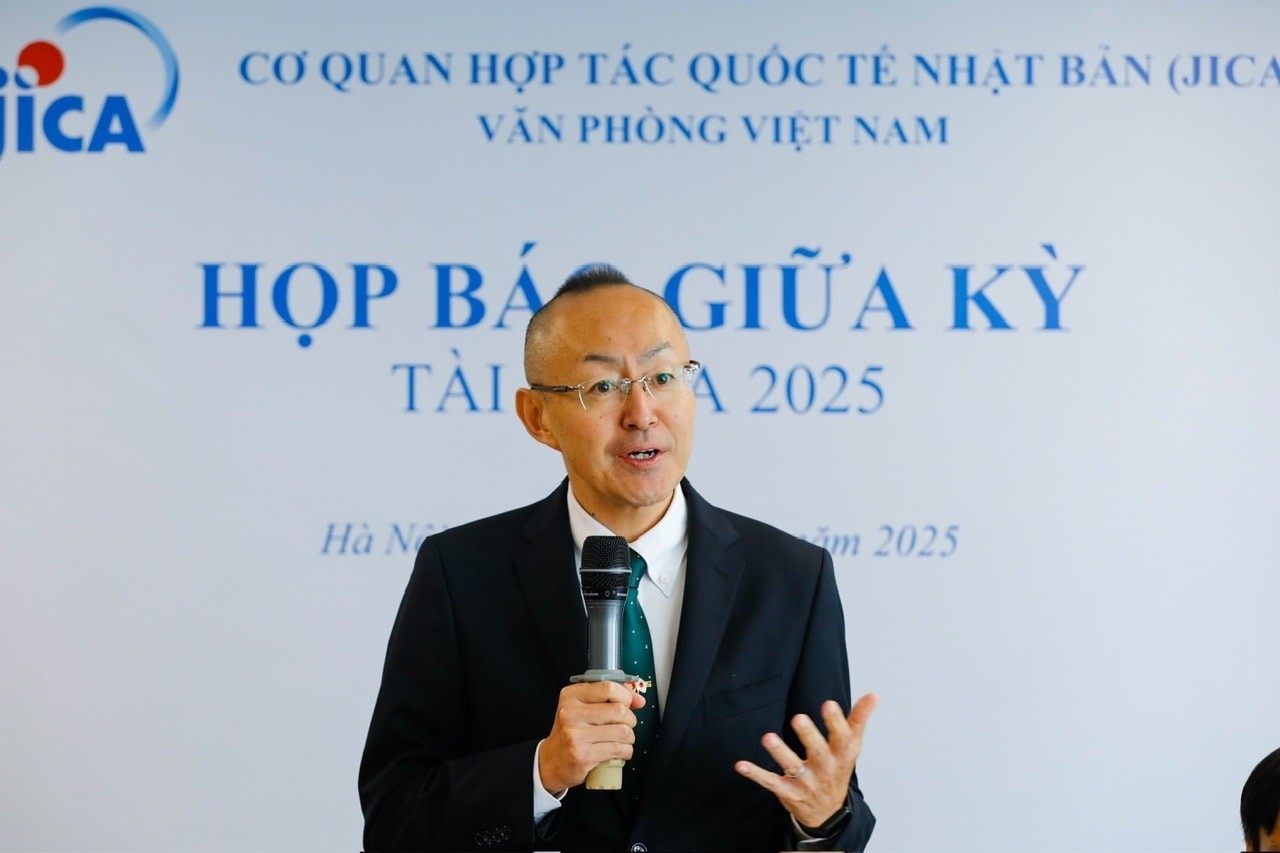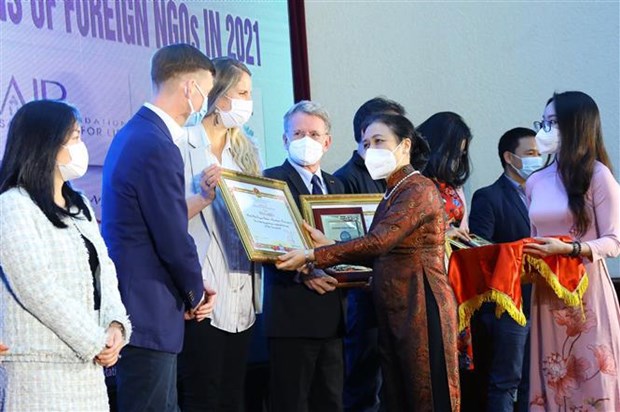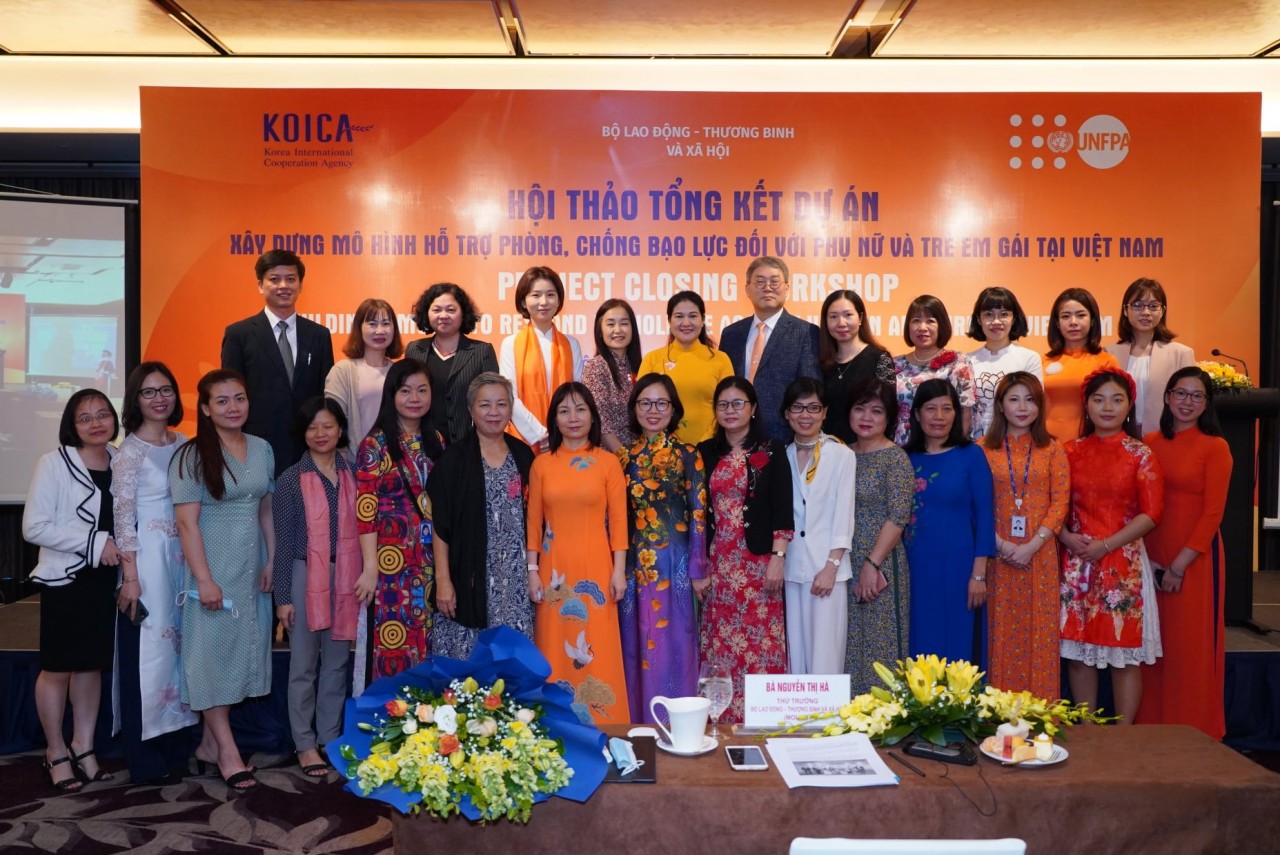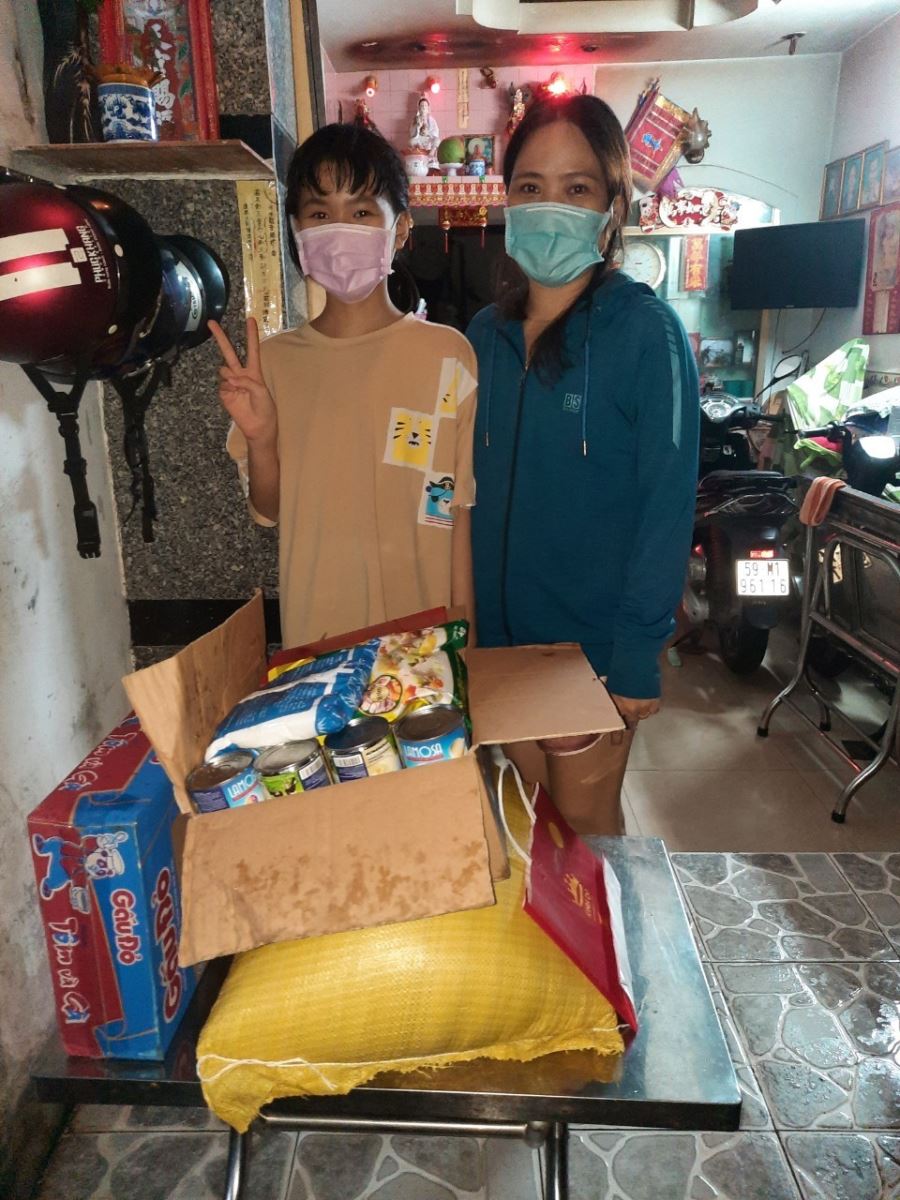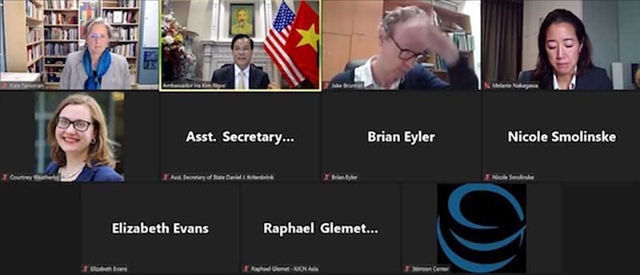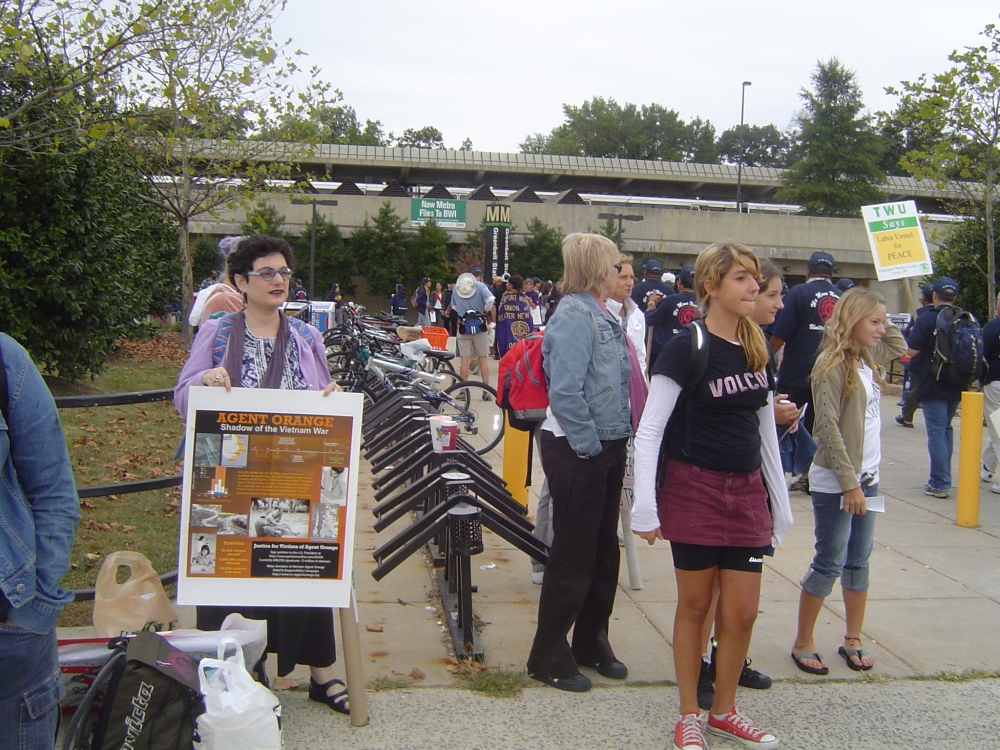On the morning of Oct. 18, team Explosive Ordnance Disposal (EOD) 1 of PeaceTrees Vietnam received information from Quang Tri Mine Action Center (QTMAC) about a bomb found in Huong Phung commune, Huong Hoa district.
Typhoon Kompasu weakened and dissipated before making landfall on October 14 afternoon, but its circulation is bringing heavy downpour to central coastal provinces of Vietnam. In the past few days, heavy rains in the province have caused landslides and isolated in many areas of Quang Tri. At Chenh Venh village, Huong Phung commune, there was a serious landslide happened. The bomb was discovered after the landslide by the border guards and informed to QTMAC.
The team immediately moved to the site to deploy an EOD spot task. The bomb, which was carried by the rock when a landslide occurred, was identified as an MK-82 bomb, has a diameter of 274mm, a length of 1.54m, a weight of 227kg. After checking and evaluating it was safe for movement, team EOD 1 moved the bomb to a safe storage location for detonation later.
PeaceTrees Vietnam is the first international non-governmental organization (NGO) permitted by Vietnam to engage in humanitarian demining work.
EOD team/ PeaceTrees Vietnam Quang Tri project receives fund/grant from WRA/U.S. Department of State for its operations in Quang Tri province since 2005 and operates in Huong Hoa and Dakrong districts, focus on EOD and EO clearance, and integrate EO Risk Education into its operation.
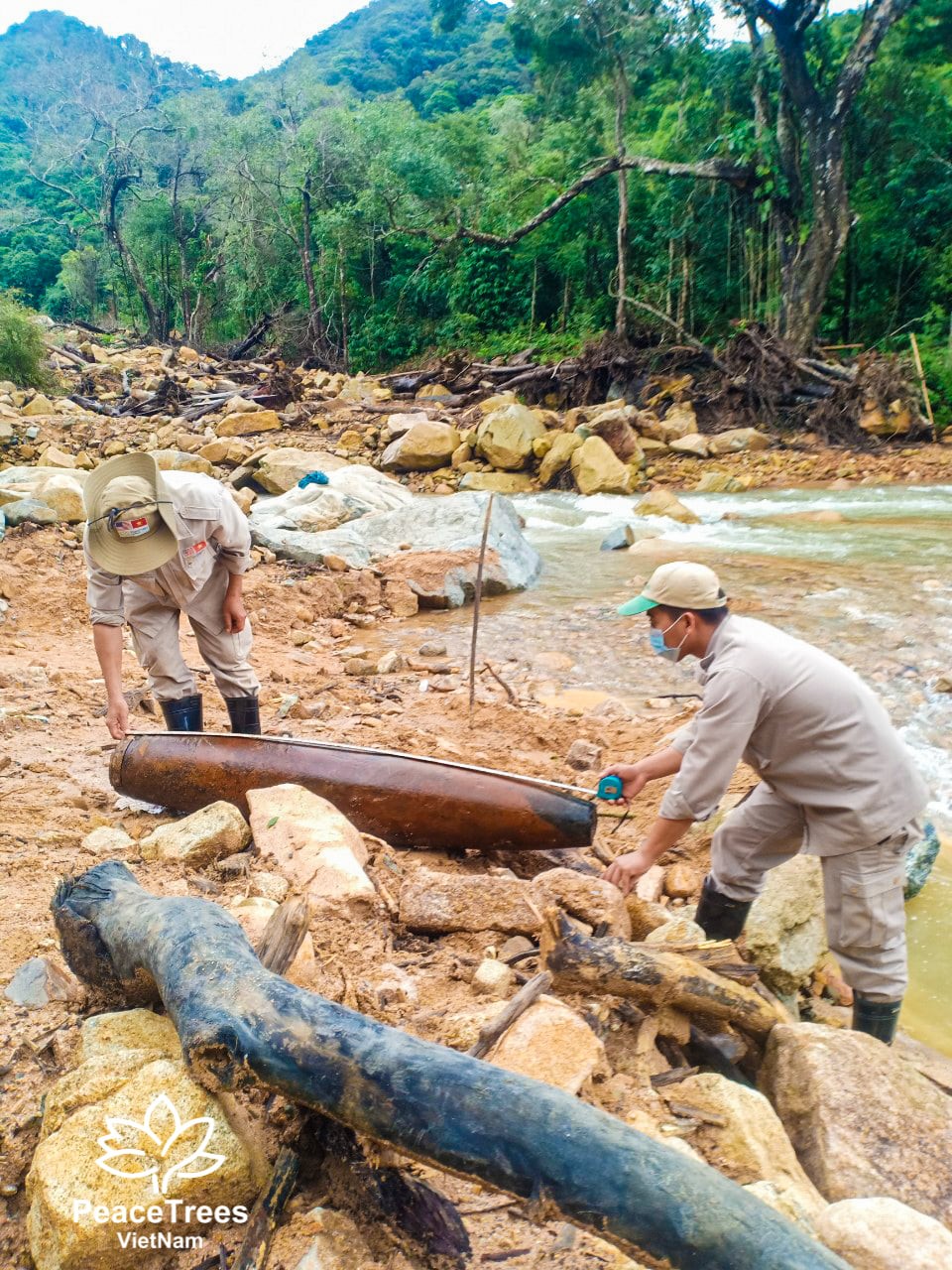 |
| Through verification, this was the bomb left over from the war; it’s a US-made MK-82 bomb with a length of 1.54 m, a diameter of 274 mm and a weight of about 227 kg. |
A representative of the Border Guard said that, in recent times, heavy rain happened in the mountainous area of Quang Tri, landslides on both sides of the river had exposed the bomb. Immediately, they assigned officers and soldiers to warden the bomb to protect the safety of the people and informed QTMAC.Last week, team EOD 1 moved a bomb to a safe storage location for detonation after receiving information from Quang Tri Mine Action Center about a bomb found on the bank of Se Pon River, right next to the Vietnam-Laos border. The bomb was discovered by the border patrol of the Thanh Commune Border Post.
Our team EOD 1 immediately moved to the site to deploy an EOD spot task. The bomb was half exposed, the rest was deeply embedded in the ground. The bomb has a diameter of 274mm, a length of 1.54m, a weight of 227kg, the head fuse has been broken, the tail fuse is identified as MK-344. After checking and evaluating it was safe for movement, team EOD 1 moved the bomb to a safe storage location for detonation later.
The awareness of landmine has contributed to changing behavior for thousands of people in Vietnam in recent years. When they see landmine/UXO, people know how to inform the mobile clearance team of professional demining organizations, thus minimizing the number of landmine/UXO incidents.
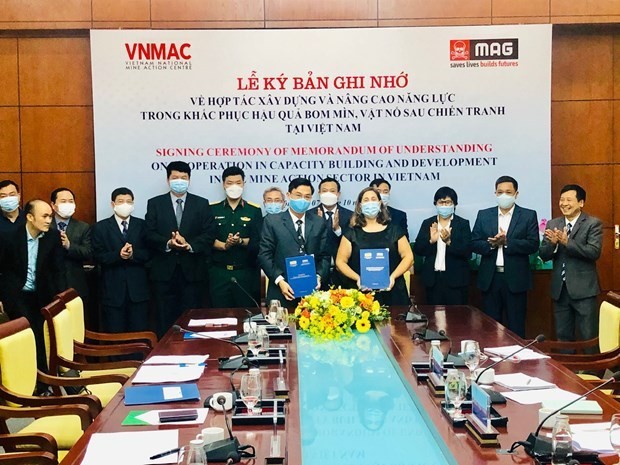 |
| The Vietnam National Mine Action Centre (VNMAC) and the Mines Advisory Group Vietnam (MAG Vietnam) cooperate in addressing post-war bombs, mines. Photo: VNMAC |
The Vietnam National Mine Action Centre (VNMAC) and the Mines Advisory Group Vietnam (MAG Vietnam) in October also have signed a Memorandum of Understanding (MoU) on cooperation in building and enhancing capacity in tackling post-war bombs, mines and unexploded ordnances in Vietnam.
The MoU is a basis for MAG to share technical expertise with VNMAC through training, developing effective quality management system, organising field visits, thus creating opportunities to help both sides develop stronger.
According to VNMAC General Director Tran Trung Hoa, the MoU marks an important milestone in the official cooperation relationship between the two sides in order to join hands in overcoming the consequences of landmines left from the war in the territory of Vietnam, and is an important premise for the two sides to specify their cooperation plans.
MAG is a non-governmental organisation that conducts humanitarian demining activities in areas where war has occurred or is currently taking place. In Vietnam, MAG began its activities in central Quang Tri province in 1999. It expanded its operations to central Quang Binh province in 2003.
MAG also completed a two-year project in the central province of Quang Nam from 2012 to 2014. Currently, MAG is continuing to operate in Quang Binh and Quang Tri – the most contaminated provinces in the Southeast Asian nation.
Quang Tri is the most severely contaminated place for bombs and mines in Vietnam. It has seen over 3,400 deaths and 5,100 injuries from UXO since the war ended in 1975.
Quang Tri is the most severely contaminated place for bombs and mines in Vietnam. It has seen over 3,400 deaths and 5,100 injuries from UXO since the war ended in 1975.
Q.Hoa t.h / Thoidai

